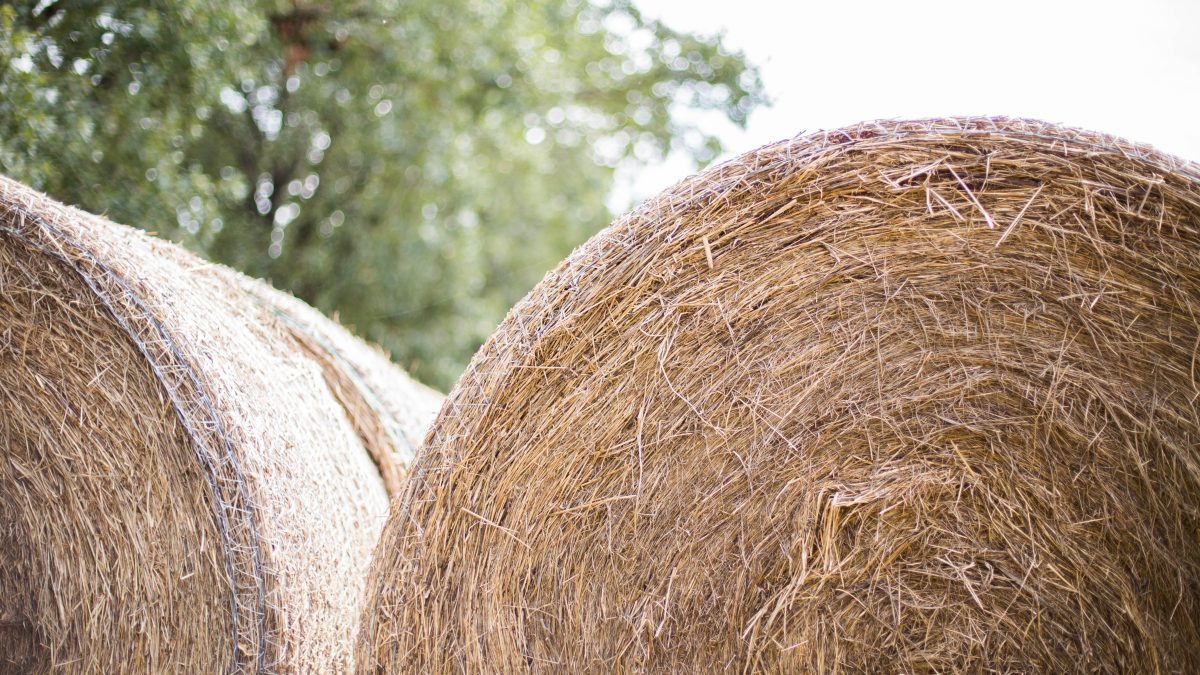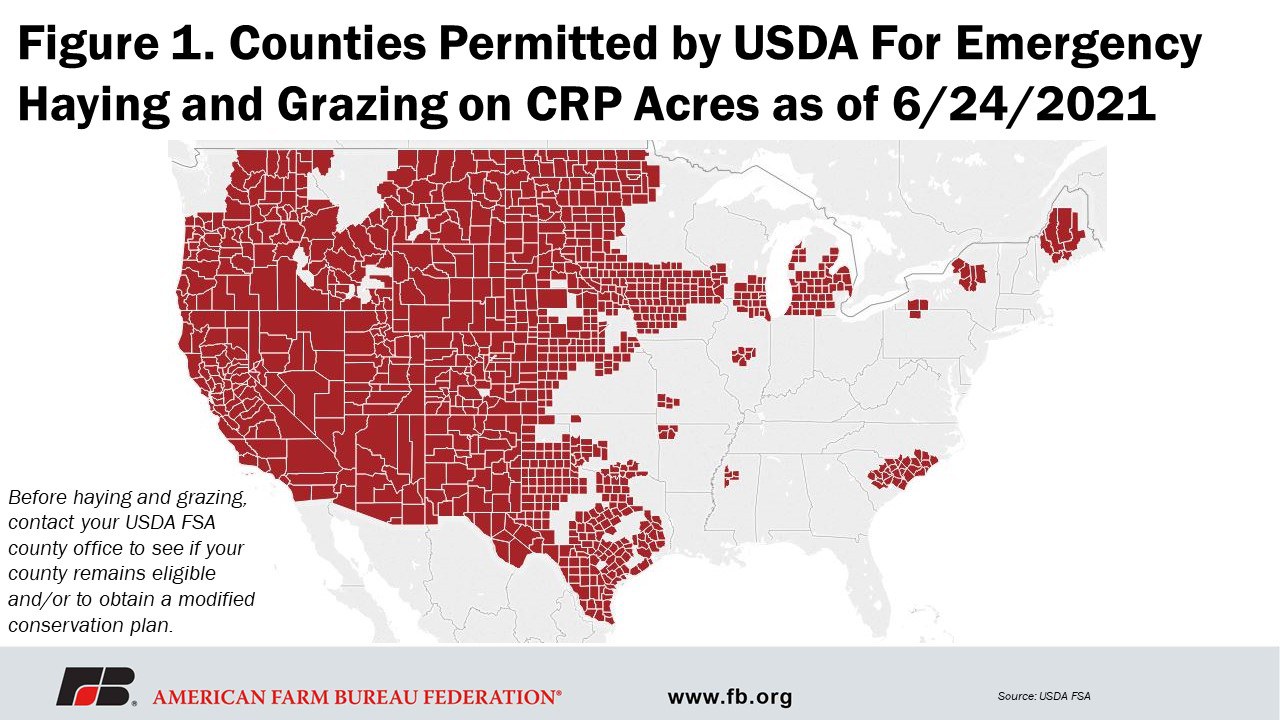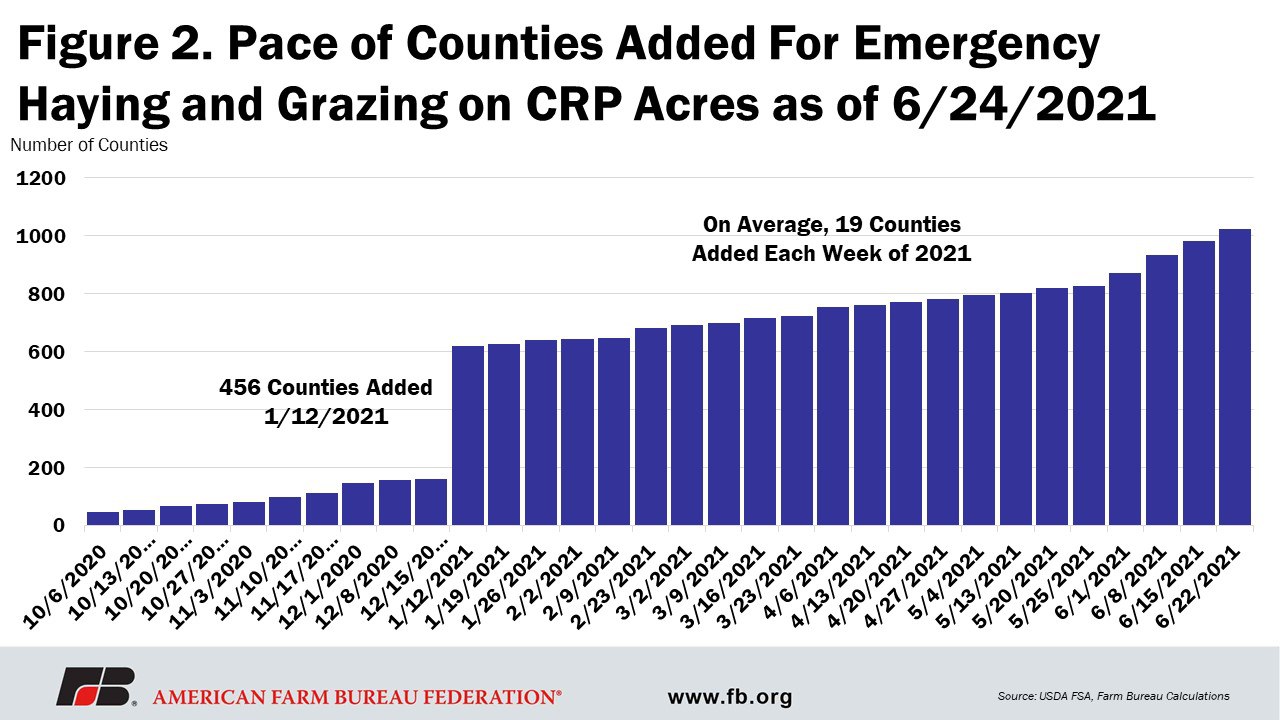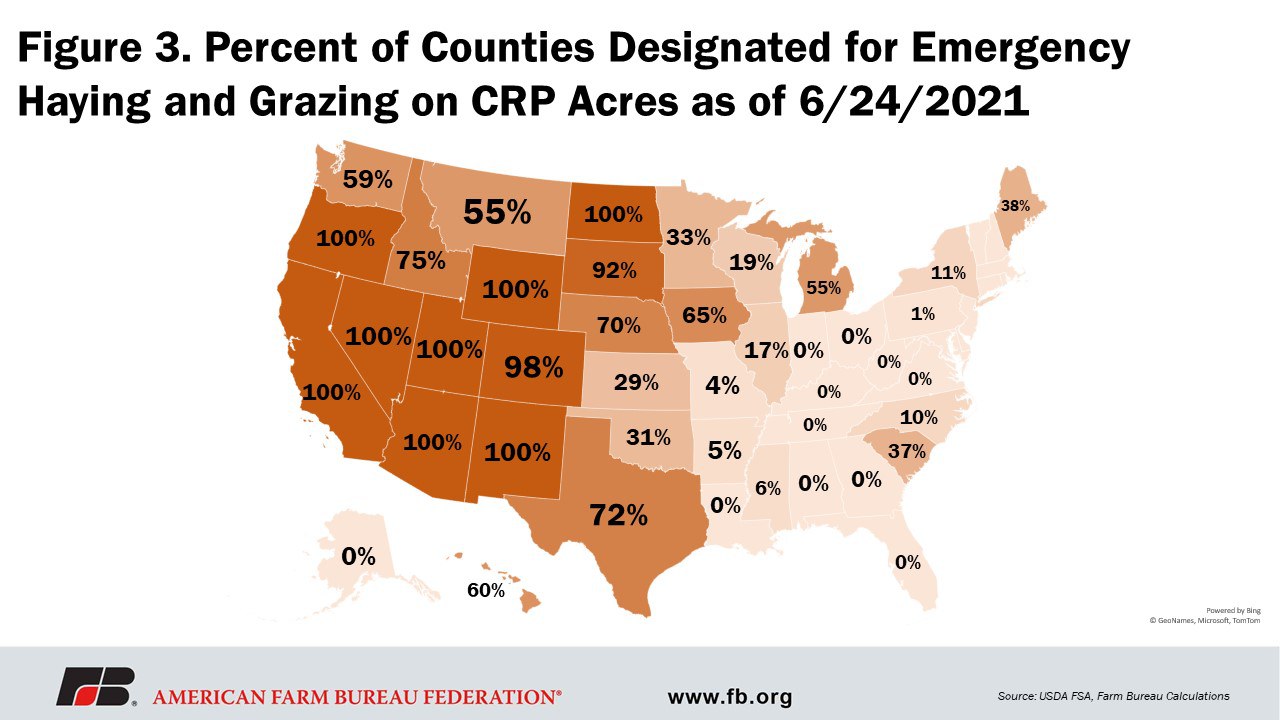Over 1,000 Counties Approved for Emergency Haying and Grazing on CRP Acres
TOPICS
USDA
photo credit: Maddison Stewart, Arkansas Farm Bureau; used with permission.
Shelby Myers
Economist
The Conservation Reserve Program is a land retirement program that provides financial compensation to landowners who voluntarily enroll highly erodible and environmentally sensitive lands. Typically, CRP contracts last 10 to 15 years to allow participants to establish long-term, resource-conserving plant species, such as approved covers, that control soil erosion, improve water quality and provide wildlife habitat.
Under certain provisions, USDA can authorize emergency haying and grazing on Conservation Reserve Program enrolled acreage to improve the quality and performance of the CRP cover or to provide emergency relief to livestock producers due to certain natural disasters. Every week, USDA updates the map of counties eligible for emergency haying and/or grazing. Producers located in a county that is designated as D2 or greater before or after the last day of the primary nesting season qualify for emergency haying and grazing on all eligible acres. Producers have up to 60 days to complete one cutting of hay for emergency haying outside the primary nesting season; emergency haying during the primary nesting season is not allowed. Producers are allowed up to 90 days of emergency grazing outside primary nesting season; emergency grazing during the primary nesting season is only allowed at a 50% reduction of normal carrying capacity and only if the county is eligible for Livestock Forage Program Payments. Figure 1 is a map using the latest data of counties USDA has permitted for emergency haying and grazing on CRP acres under the specific provisions.

As of June 24, the most recently published list of counties with permitted haying and grazing on CRP land includes 1,021 counties, or 32% of counties, primarily located in the West; 860 of those counties have been designated in 2021. In June alone, emergency haying and grazing on CRP acres was authorized in 196 counties. Between June 17 and June 24, 39 counties were added to the designation list, an increase of 4% in one week. Figure 2 contains the latest data on the number of counties that have emergency haying and grazing permitted on CRP acres each week since Oct. 6, 2020.

In order for CRP haying and grazing to be authorized, USDA staff reviews each county’s status every Thursday using the U.S. Drought Monitor. Counties are approved for emergency haying and grazing when they are designated as level “D2 Drought - Severe” according to the U.S. Drought Monitor.
Counties may request emergency haying and grazing status through the Farm Service Agency County Committee in the event of a livestock emergency, the threshold for which is a documented 40% or greater loss of forage production due to the disaster event. Before haying and grazing, producers should contact the local USDA FSA County office to verify their county remains eligible and/or to obtain a modified conservation plan.
When a county is designated as D2 Drought – Severe and emergency haying and grazing is authorized, producers can use their CRP acreage for their own livestock or may grant another livestock producer use of their CRP acreage. For emergency haying, producers are limited to one cutting and are permitted to sell the hay. Participants must remove all hay from CRP acreage within 15 days after baling and remove all livestock from CRP acreage no later than one day after the emergency grazing period ends.
When broken down as a percent of counties in the state designated for emergency haying and grazing on CRP acreage, all counties in eight states are eligible --Arizona, California, Nevada, New Mexico, North Dakota, Oregon, Utah and Wyoming. Colorado follows closely, with 98% of counties permitted for emergency haying and grazing on CRP acres. South Dakota currently has 92% of the counties permitted. Figure 3 maps the percent of each state’s counties that are currently permitted for haying and grazing on CRP acres as of June 24, 2021.

Summary
Counties designated as level D2 Drought - Severe according to the U.S. Drought Monitor can be approved for emergency haying and grazing on CRP enrolled acreage. In addition, counties may request emergency haying and grazing status through the FSA County Committee in the event of a livestock emergency. The threshold for an emergency is a documented 40% or greater loss of forage production due to the disaster event. Every week, USDA updates the map of counties eligible for emergency haying and/or grazing. As drought conditions persist, this is an option producers can use to help supplement forage needs. However, with the drought so widespread and conditions expanding East, farmers and ranchers will likely need other methods for supplying forage to livestock.
Top Issues
VIEW ALL